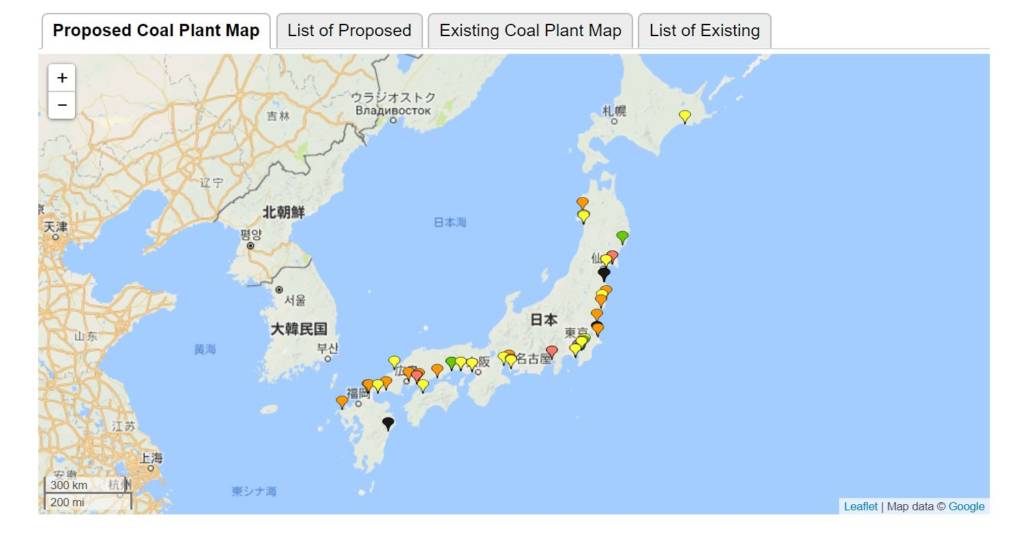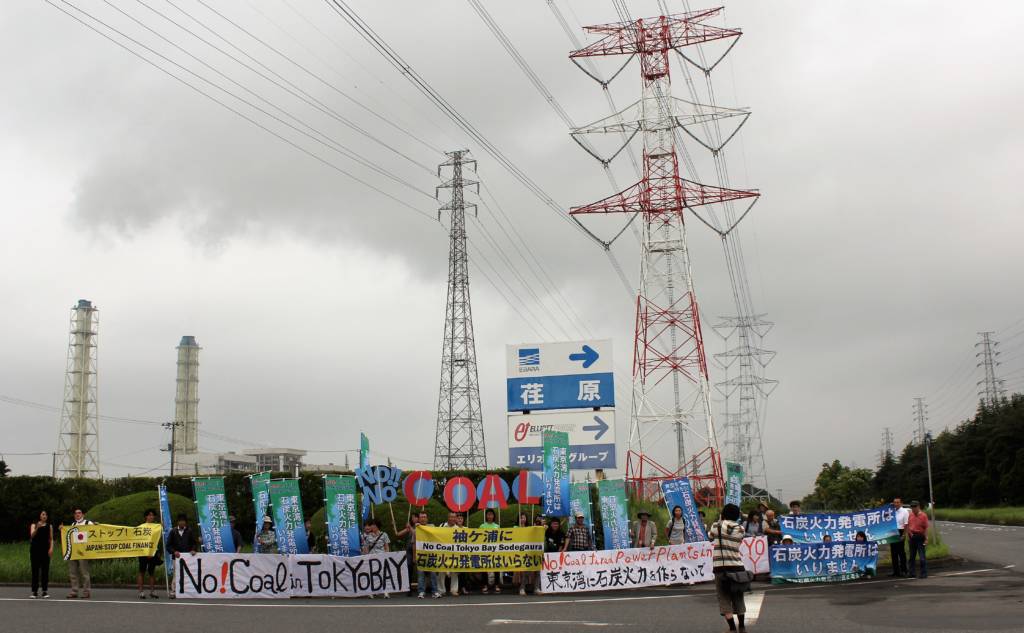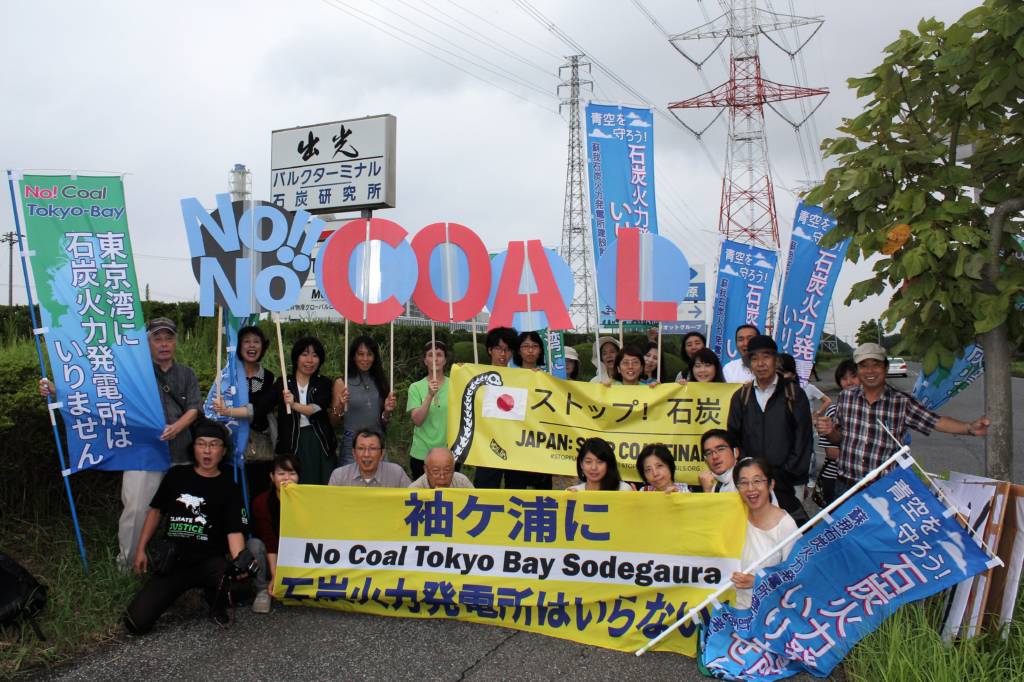By Marie Tanao
“Clean coal” is a myth. Japan is behind the rest of the world in recognizing this truth.
In 1992, the Ministry of Economy, Industry and Trade (METI) then known as the Ministry of International Trade and Industry (MITI), designated September 5 “Clean Coal Day” to obfuscate the fact that coal is in fact the dirtiest energy source.
Today, despite being a signatory to the Paris Agreement, Japan has plans for 42 new coal-fired power plant installments domestically. Meanwhile, the Japanese government and private banks are pouring massive funding into contentious coal developments overseas.
 (Map of the proposed coal plant installations in Japan. Retrieved from: http://sekitan.jp/plant-map/en)
(Map of the proposed coal plant installations in Japan. Retrieved from: http://sekitan.jp/plant-map/en)
Around Tokyo alone there are construction plans in three different cities. Sodegaura in Chiba Prefecture will be the host of the biggest and most polluting plant. Chiba Sodegaura Energy, a company funded by Kyushu Electric Power Company, Tokyo Gas, and Idemitsu Kosan, a Japanese petroleum company, are advancing plans to build 2 coal-fired power plants that have the combined capacity of 2,000 MW. Local citizens have formed opposition groups to contest these developments citing health concerns and environmental degradation.
Around this time each year, the Japan Coal Energy Center (JCOAL), a foundation that promotes Japan’s “clean coal” technology, hosts an international symposium to commemorate Clean Coal Day. The local group received word that as a part of its 2017 symposium, JCOAL and the event hosts were planning a site visit to a coal research facility in Sodegaura city. Stakeholders from 27 foreign embassies were said to attend this trip, including the United States, Indonesia, Australia, and Malaysia. Seizing this opportunity to voice their opposition, the local group organized concerned citizens from Sodegaura and Tokyo to stand in front of gates of the coal research facility with large banners that read: “No Coal in Tokyo Bay.” The 350 Japan team supported this action with a number of volunteers.

Heavy clouds hung over our heads as we waited for the symposium participants to arrive in their chartered bus. As the bus pulled into the gates, we welcomed the participants with lively chants demanding a coal-free, cleaner future. We knew we had burst their coal bubble when we caught a glimpse of the surprised expressions of delegates and officials aboard.
“Japan does not need coal” — we communicated this message forcefully.
Japan already has 96 functioning coal-fired power plants. If the plans for 42 new installations go through, the country will not be able to meet its commitments under the Paris Agreement.
The 350 Japan team’s research indicates that the country’s three major Japanese banks are pouring massive funding into the companies behind this coal-fired power plant development. We hope to further clarify these financial connections and use the My Bank My Future campaign to support local groups, such as in Sodegaura city, to halt these construction plans by pressuring banks to defund new coal in Japan.
The clean coal myth is gradually being chipped away through the actions of local opposition groups. Even the Japanese Environment Minister has expressed serious concerns about the new coal developments. The international community also has a role to play and we ask our international allies to call out Japanese banks and Japanese companies for perpetuating coal dependency abroad. We are especially concerned by the Japanese Government’s push to promote polluting coal power in Indonesia, Vietnam and now the African continent through the African Development Bank.
Starting by mobilizing individuals, socially responsible companies and organizations to divest their money from fossil and nuclear banks, we will amplify the call to end coal in Japan and hasten the shift towards a 100% renewable energy future.

